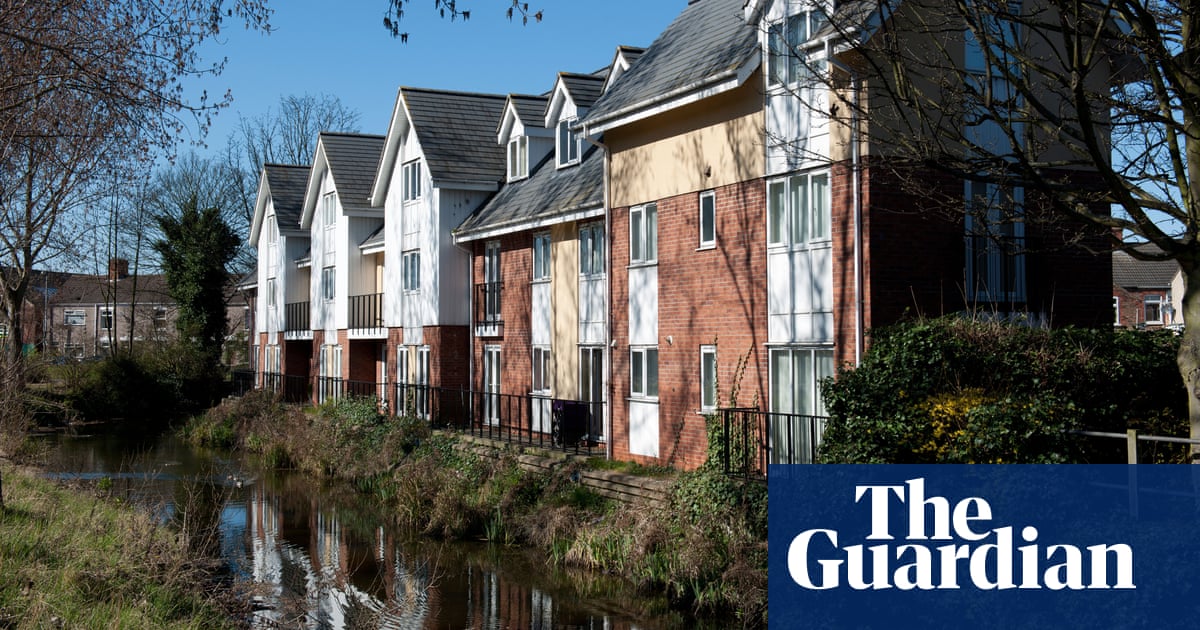
Michael Gove is planning to rip up water pollution rules that builders have blamed for exacerbating England’s housing crisis but which environmental groups say are essential for protecting the country’s rivers.
The housing secretary, alongside Thérèse Coffey, the environment secretary, will announce the move on Tuesday, according to several people briefed on the plans, alongside hundreds of millions of pounds’ worth of extra funding to mitigate the potential impact on England’s waterways.
The decision will spark anger among environmentalists, who say it will further add to water pollution, as water companies are already dumping raw sewage into rivers and seas. Political advisers say water pollution has already become a major political issue in coastal areas, and has the potential to cost the Conservatives important seats at the next election.
However, it will please major developers, who say the rules are being applied so strictly that they are unable to build new homes in large parts of England. Building industry projections say housebuilding in England is forecast soon to fall below levels not seen since the second world war.
Doug Parr, policy director at Greenpeace UK, said: “Who would look at our sickly, sewage-infested rivers and conclude that what they need is weaker pollution rules? No one, and that should include our government. Scrapping or weakening limits on chemicals from sewage and farm run-offs would be a sure sign that ministers have completely given up on saving our great waterways and the precious wildlife they host.
“Instead of allowing housebuilders to cut corners, the Sunak administration should make sure we have the right infrastructure to handle our sewage so we can build new homes without sacrificing our rivers’ health. But that would require them to do what they’ve spectacularly failed to do so far – forcing water firms and housebuilders to invest their profits in upgrading treatment plants and pipes to a standard that a modern, functional country would expect.”
However, one source in the housebuilding industry said: “This is undoubtedly good news for Britain’s housing supply. The only question is why it has taken so long for the government to get round to doing something about this.”
The nutrient neutrality rules were put in place in 2017 when the UK was still a member of the EU. They say that in dozens of protected areas across England, local authorities should not give the go-ahead to any new development that is projected to add to river nutrients such as phosphates and nitrates, either through wastewater from new homes or run-off from building sites.
The regulations were first enacted by the EU in an attempt to prevent damaging buildups of algae and other plants, which can choke off aquatic life.
Developers, however, say they are being enforced by Natural England in such a strict way that they have been forced to put as many as 120,000 new homes on hold, and argue that farmland is a far bigger contributor to the pollution in question.
Under the existing rules, builders have to mitigate new nutrient loads caused by new populations in housing either onsite or elsewhere within the same catchment. They can do this by investing in new wetlands or by creating buffer zones along rivers and other watercourses. Builders have complained that doing so was costly and time-consuming.
In response to developers’ complaints, ministers launched a mitigation scheme in 2022 under which builders were allowed to buy “credits” to gain approval for their schemes. But those developers say that the process of purchasing such credits has occasionally led to unintended consequences, such as buying up farmland to take it out of use in an attempt to reduce water run-off.
Despite these changes, ministers say there is still a problem. Gove recently told the Sunday Telegraph that the rules should be changed as they get the “balance wrong”. In his announcement on Tuesday he will say the repeal of the rules is a “Brexit bonus”.
Those briefed on the plans say the government will try to change the law through an amendment to the levelling up and regeneration bill, which is currently in the House of Lords. Ministers might yet find it difficult to secure enough support for the bill, which must pass by the autumn or have to be reintroduced in a new bill in the King’s Speech in November.
The government is hoping to nullify some of the opposition with a package of hundreds of millions of pounds to reduce water pollution in other ways. They will give around £400m in grants to farmers and water companies to improve slurry infrastructure to make leaks less likely, and spend around another £300m helping builders mitigate the impact of their schemes.
Opposition parties are preparing to oppose the plans nevertheless.
Tim Farron, the Liberal Democrats’ environmental spokesperson, said: “Not content with the levels of pollution in our rivers already, scrapping nutrient neutrality is a disgraceful act from the government. The Conservatives seem happy for Britain’s rivers to get even worse.”
Shaun Spiers, head of Green Alliance, said: “It’s hard to see how the law can be enforced without nutrient neutrality. Is the government proposing more pollution or that someone else (other than the housebuilders) pays for it? The trouble is, housebuilders always oppose proper regulation if they think they can get away with it, and governments are so desperate for more housing (and so unwilling to invest in it themselves) that they always believe them.”
Katie-Jo Luxton, director of conservation at the Royal Society for the Protection of Birds, said: “If nutrient neutrality rules are scrapped, pollution will accumulate unchecked and our rivers face total ecological collapse.












